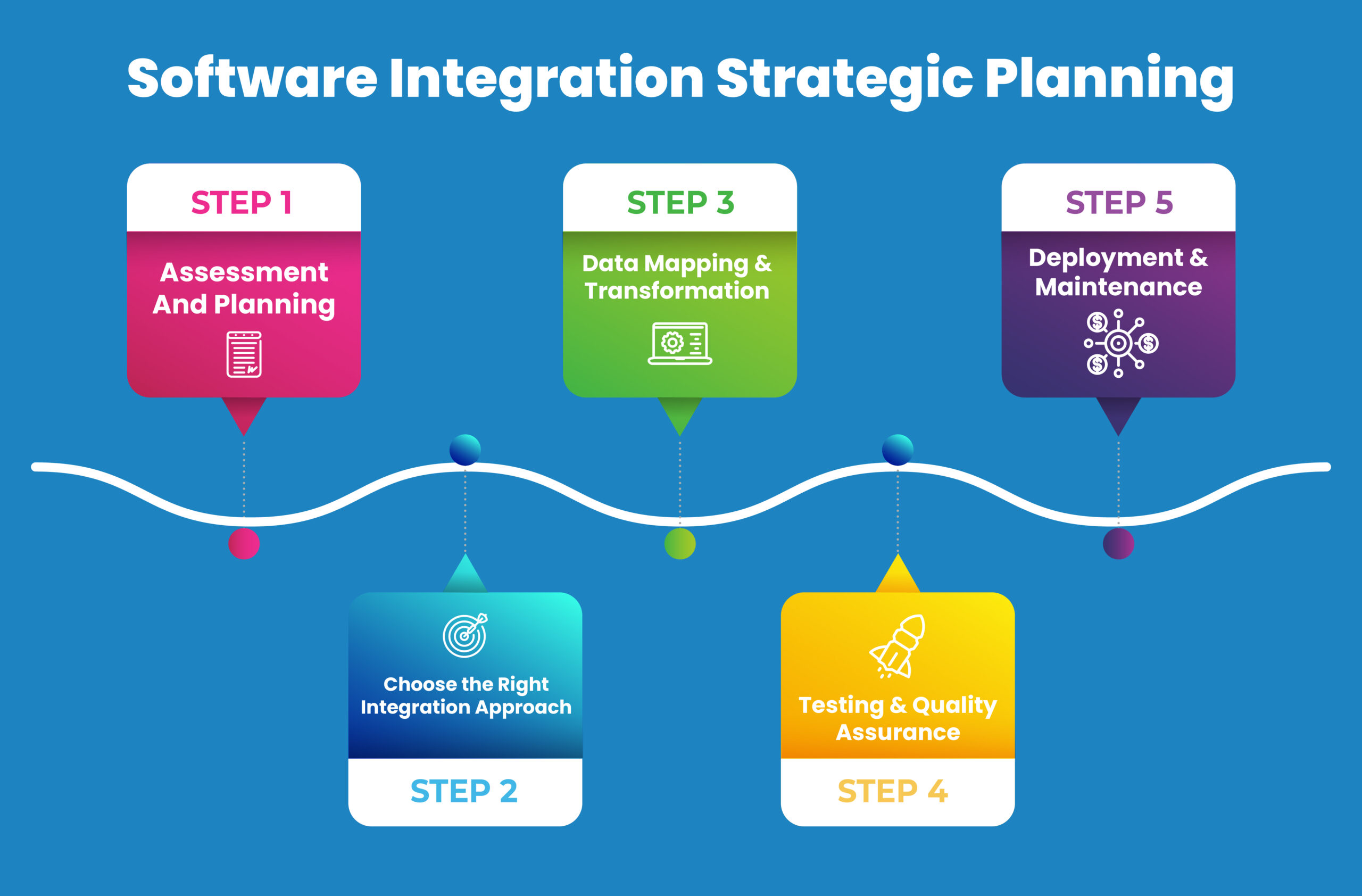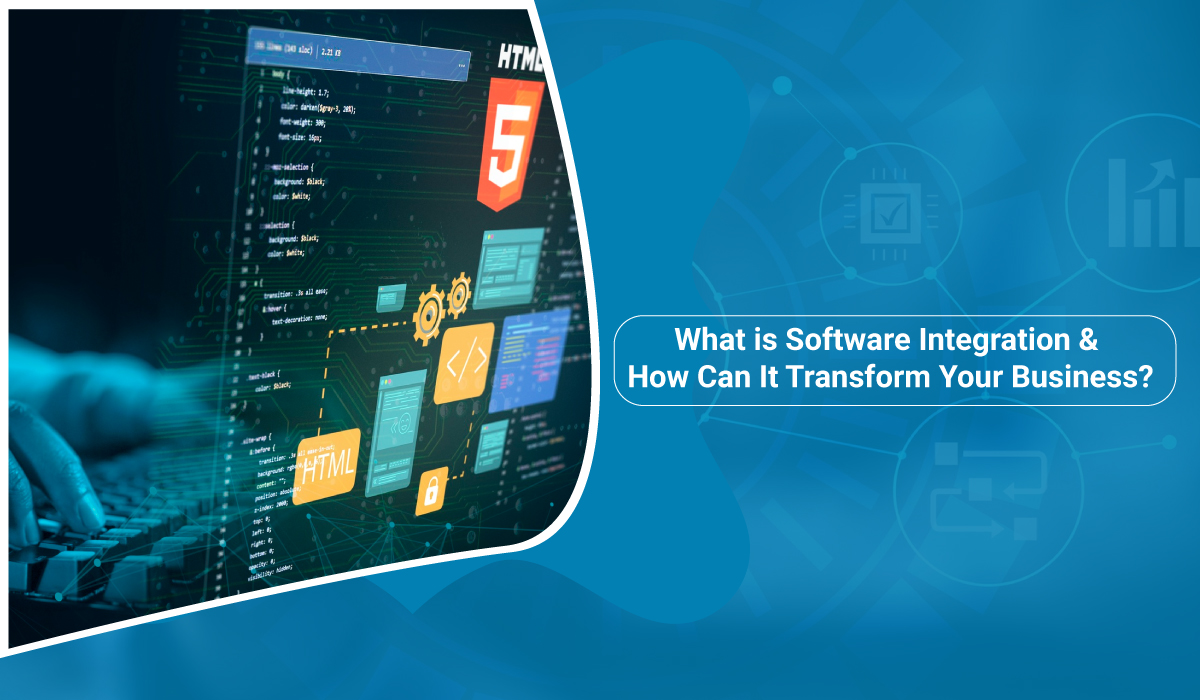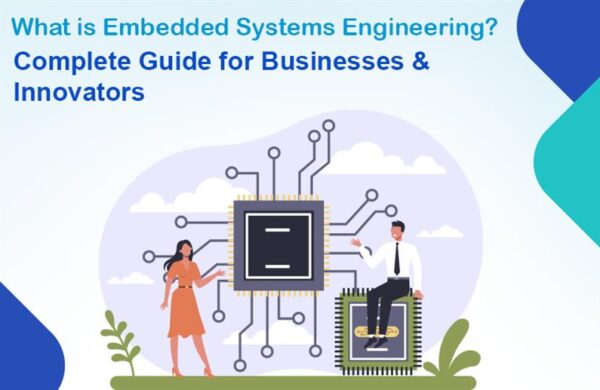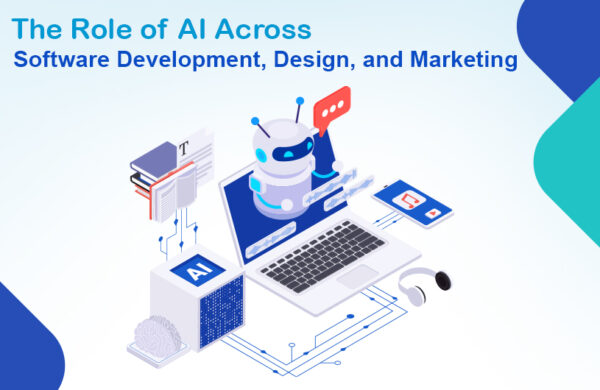Software integration: Introduction
To remain ahead of the competition in today’s fast-paced and ever-changing corporate environment, one must not only be innovative but also have seamless connectivity across all aspects of operations. Software integration has emerged as a transformative force, enabling companies to streamline processes, enhance efficiency, and foster a more agile and responsive business environment.
In this comprehensive guide, we will delve into the intricacies of software integration, exploring its nuances, benefits, and the strategic approach that can propel your business to new heights.
Understanding Software Integration:
At its core, software integration refers to the process of connecting different software systems and applications physically or functionally, allowing them to work together seamlessly. This collaborative approach eliminates silos, promotes data flow, and enhances the overall functionality of the business ecosystem.
The Evolution of Software Integration
In the fast-evolving tech landscape, the need for cohesive and interconnected software systems has grown exponentially. Traditionally, businesses operated in silos, with disparate software applications often hindering communication and collaboration. However, the evolution of software integration has paved the way for a more interconnected and synergistic approach to business operations.
Breaking Down Software Integration
Application Software Integration: Unifying Operations
One of the fundamental aspects of Application Software Integration lies in the unification of application software. This involves seamlessly connecting diverse software applications within an organisation, creating a harmonised digital environment. By breaking down the barriers between applications, businesses can optimise workflows, reduce manual interventions, and bolster overall productivity.
Software Integration Company: Choosing the Right Partner
The journey towards effective software integration often begins with selecting the right partner. A reputable software integration company brings expertise and experience to the table, ensuring a smooth and successful integration process.
Integration Software Development: Tailoring Solutions to Your Needs
Customization plays a pivotal role in software integration, and integration software development is the key to achieving a tailored solution. It can involve a variety of steps, including requirements gathering, design, development, testing, and deployment. It’s important to work closely with a skilled team of software developers who can understand your business processes and goals to create a solution that truly meets your needs.
The Necessity of Software Integration Strategic Planning
Achieving successful software integration requires a well-defined strategy that aligns with the business objectives. A robust software integration strategy encompasses various elements, including:

Assessment and Planning: Begin by conducting a thorough assessment of your current software landscape. Identify the key systems that need integration and set clear objectives for the integration process.
Choose the Right Integration Approach: There are various integration approaches, including point-to-point integration, middleware integration, and API-led integration. Selecting the most suitable approach depends on the complexity of your systems and the level of customization required.
Data Mapping and Transformation: Understand the data structures of different applications and create a mapping plan. Transformation processes may be necessary to ensure data consistency and compatibility across integrated systems.
Testing and Quality Assurance: Rigorous testing is essential to identify and address any issues before deploying the integration software development This includes functional testing, performance testing, and security testing.
Deployment and Maintenance: Once testing is successful, deploy the integrated solution. Regular maintenance and updates are crucial to adapt to changing business requirements and technology advancements.
Conclusion: Embracing the Future of Business Operations
In conclusion, software integration is a transformative force that can propel businesses towards greater efficiency, collaboration, and competitiveness. Application software integration, facilitated by a software integration company and supported by integration software development, is a strategic imperative for organisations seeking to thrive in the digital era.
Crafting a successful software integration strategy is key to navigating the complexities of the integration process, ensuring that integrated systems operate seamlessly and adapt to evolving business needs. MEAN stack development companies with their expertise in dynamic and scalable web applications, contribute significantly to the success of software integration initiatives.
If you’re looking for a company to handle all your project requirements and provide innovative solutions to drive your business’s future growth, Monarch Innovation is the one to consider. This Indian Outsource Engineering Company serves clients worldwide through strategic alliances, collaborations, and partnerships. With their state-of-the-art infrastructure and a team of highly skilled specialists, they have a competitive advantage in the market. Monarch Innovation is dedicated to fostering creativity and innovation as their fundamental values.
FAQs
Q.1 What is software integration, and why is it important for businesses?
A. Software integration involves combining different software systems to work together seamlessly. It is crucial for businesses as it enhances efficiency, improves communication, and streamlines processes.
Q.2 How can software integration contribute to cost efficiency?
A. By reducing operational costs through the elimination of redundant processes and automation, software integration can significantly contribute to cost efficiency.
Q.3 What challenges do businesses face during software integration?
A. Common challenges include compatibility issues, data migration complexities, and the need for extensive training.
Q.4 What are the best practices for successful software integration?
A. Comprehensive planning and regular system updates are key best practices for ensuring successful software integration.
Q.5 What are the future trends in software integration?
A. Emerging technologies such as artificial intelligence and blockchain are expected to shape the future of software integration, providing new possibilities for businesses.
Q.6 What are the benefits of software integration in an organization?
A. Benefits of software integration
1. Increased productivity
2. Increased sales potential
3. Better customer service
4. Simplified decision-making More reliable data.
5. Improved data security
6. Enhanced analysis
7. Human resource software integration
8. Process automation





